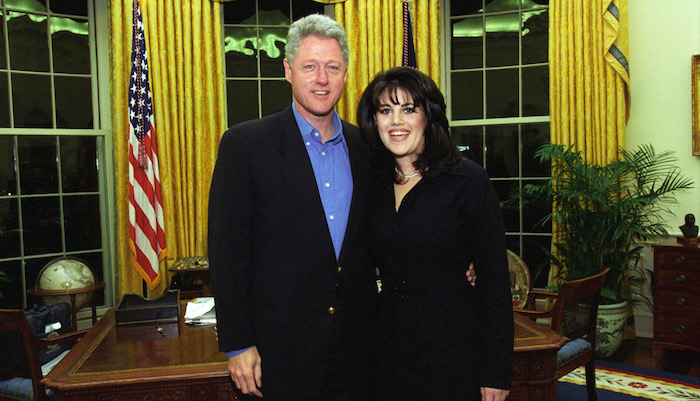
“I am in over 150 rap songs,” says Monica Lewinsky in her much-shared, much-cited Ted talk on the Price of Shame. 20 years have passed since her affair with Bill Clinton became public. But, she has not disappeared from the popular conscious. She is also, perhaps without knowing, one of the most obvious canaries in the as far as the world’s attitudes towards women.
It’s not hard to dislike Monica Lewinsky. Many people reading about her (or, watched “The Clinton Affair”) find her defiance hard to take – particularly as she describes her affair with Clinton and the part she played in drawing it out. Many will see her recent public appearances as rebranding a la “Me Too” and dismiss her as just another fool to fall for a powerful man.
Oh, how convenient of her to realize the power differential now? Why can’t she just go away already?
Here’s the thing though: we all should care about what happens to Monica Lewinsky, even if we personally dislike Monica Lewinsky.
We should all care, because what happened to her can happen to any of us.
In “So You’ve Been Publicly Shamed,” Jon Ronson details a ton of stories that are both like Lewinsky’s and not—people who came into the public spotlight, were shamed and were never again able to escape the legacy of that one pivotal moment in their lives. Some of them, it can be argued, deserved all the flak that they got. Others were caught up in a maelstrom that they neither expected nor could have predicted. Privacy was dashed in seconds. A that point, these people became known only for the worst, lowest point in their lives.
These days, very few of us can control our own narrative. Being recorded without your consent is not illegal everywhere, and even when another person breaks the law, so what? The damage can be done in seconds. Remember “Famous” by Kanye West? Remember the bit where we debated on whether it was legal for Kim K to record and leak a private phone call and then it didn’t go anywhere? If the rich and famous cannot get the law to work for them, where does that leave the rest of us?
Set aside for a second your opinion of Monica Lewinsky’s affair with Bill Clinton. It doesn’t matter where you fall on the court of public opinion – whether she has paid her dues, whether she was innocent all along – and just ask yourself this:
Do any of us deserve the right to be forgotten?
Some may argue—no. That there are people whose crimes are so terrible, so universally horrific, that we must never lose sight of them, or what they did. We must not forget that they pose a danger to themselves and others, and must be easily recognised and shamed.
Those are valid arguments. Or would be, if we as a society agreed on where to set that bar. If we are so progressive as a society, why are Harvey Weinstein, Bryan Singer, and Louis CK, trying to stage comebacks already? Or, to take Monica Lewinsky’s own argument, why is she expected to change her name and disappear, but the same is not asked of Bill Clinton?
As a society, we are still measuring women by a different standard than men. If we cannot afford each other the right to be forgotten, where does that leave us on the right to be forgiven? Or the right to forge our own paths?
You may not care about Monica Lewinsky, but you should absolutely care about what happens. She presents us with the best case scenario about what might happen to all of us.
Featured photo via Wikimedia